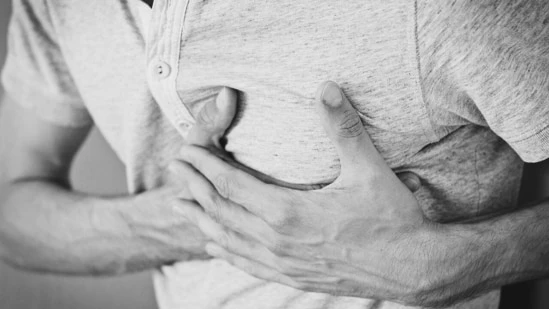Ever experienced sudden chest pain and thought you might be dying? For many, the first fear is a heart attack. But in some cases, the culprit is something far less dangerous – acid reflux. The challenge is that both conditions can feel strikingly similar, leaving people unsure of what their body is really signaling.
Dr Kunal Sood, an anesthesiology and interventional pain medicine physician, is differentiating the symptoms of heart attack and acid reflux, to help people recognise when it’s time to worry. In an Instagram video he posted on September 13, the doctor describes the distinct characteristics of pain associated with each condition, emphasising the importance of seeking medical attention for any sudden or unusual chest pain and also suggests methods for preventing acid reflux.
Heart attack vs acid reflux
According to Dr Sood, chest pain is not always a symptom of heart attack and the most common non-cardiac reason for chest pain is acid reflux. He breaks down how the symptoms differ between the two.
Heart attack symptoms
Dr Sood states, “Heart attack pain usually feels like pressure, tightness, or squeezing in the chest, and it may spread to the shoulders, neck, jaw, or arms.” It can also be accompanied by dizziness, shortness of breath, nausea, and cold sweats. The doctor recommends seeking medical help immediately if you experience these symptoms.
Acid reflux symptoms
“Acid reflux usually causes a burning sensation in the chest, often after eating or when lying down. It can come with a sour taste in the mouth, difficulty swallowing, or a chronic cough,” explains the doctor. He suggests eating smaller meals and avoiding late-night snacking, to prevent reflux.
He also highlights that heart attack symptoms are not the same for everyone. Women often feel pressure in the upper back, extreme fatigue or an upset stomach, instead of the classic chest pain.
Precautions
The doctor stresses that paying attention to symptoms is key to protecting overall health, and recommends consulting a doctor at once, if you experience sudden or unusual chest pain. “Tests like an ECG and blood work can help determine the cause of the pain,” said Dr. Sood, and added, “To help prevent acid reflux, try eating small, frequent meals. Avoid lying down after eating and chewing gum to help digestion.”
